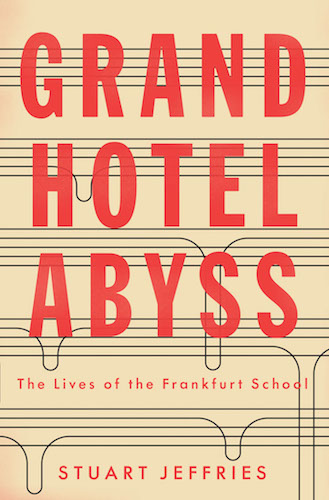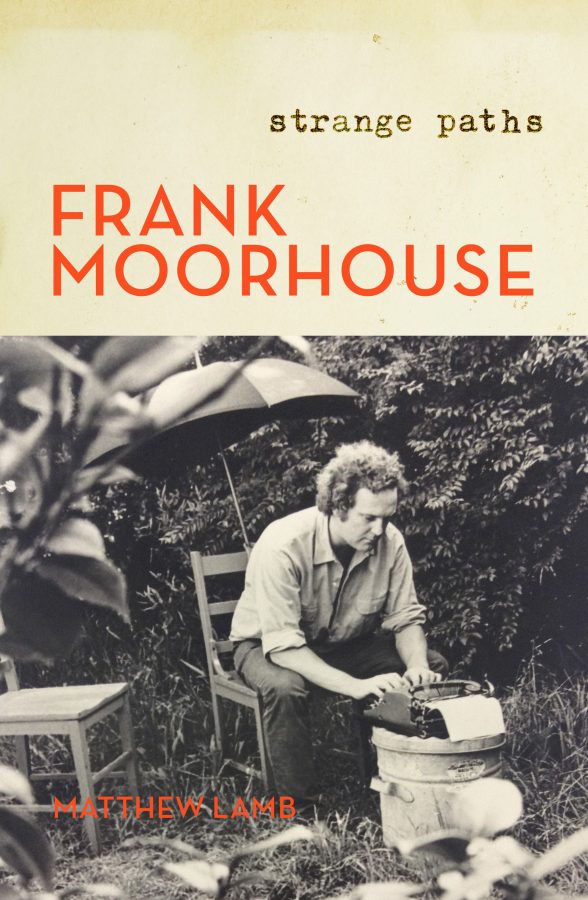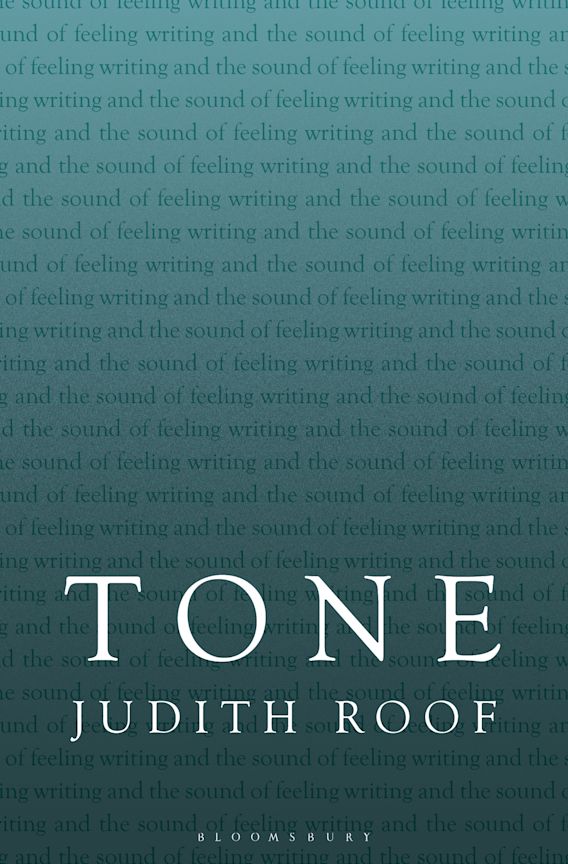The tale of the political left is a tale of violent conflict. Of barricades and bullets. Of hard-won victories and merciless reprisals. Of lives cut short in martyrdom. And philosophy, we have been told, is a reflection of this: ‘the class struggle in theory,’ according to Louis Althusser’s famous dictum. The apposition of conflict and philosophy is doubly appropriate when it comes to Germany, birthplace of Karl Marx, and especially so during the twentieth century. It was in Germany that two of the left’s foremost intellects were thoroughly committed to the kind of civil dissensus that would ultimately claim their lives.
Rosa Luxemburg, co-founder of the Spartacus League, urged the industrial proletariat toward a general strike against the German Empire’s involvement in the first world war. For this, she spent two and half years in prison. Soon after her release, she was captured and murdered by paramilitary forces ordered in by the Social Democratic Party. This was in January 1919. Her body was dumped into the Landwehr Canal, where it remained frozen until the following spring.
Luxemburg’s story was echoed almost half a century later. In May 1976 Ulrike Meinhof, chief ideologue of the Red Army Faction, was arrested for her role in acts of guerilla warfare. Bombings, robbery, kidnapping, and shootings. Before the conclusion of her court trial, Meinhof was found hanged by a towel in her cell in Stammheim Prison. Whether her death was murder or suicide is still up for dispute.
In another time and place, namely London at the end of 2010, a student named Alfie Meadows was bludgeoned with a police truncheon during a protest against tuition hikes. He required emergency brain surgery. Police brutality is the common thread here but it is worth instead pausing on a relatively new technology for political resistance deployed during these protests: namely, the book bloc shield.
The shields are made of painted cardboard, foam padding, rope, and plexiglass, and their outward faces are painted with the likeness of famous literary dust jackets. These shields are thereby designed to make political statements through recognizable iconography whilst serving as a practical defense against police batons. ‘With Arts and Humanities a particular target for UK cuts,’ reads a statement from the protestors, ‘this is a literal display of literary resistance.’ There is real beauty in this, the material force of literature, now a means of defense, now a weapon. In 2010, these shields featured the expected titles from Huxley and Ruskin, Joyce and Beckett – but conspicuous among them was Negative Dialectics by Theodor Adorno. This 1966 work can be thought of as a proxy for the political conflict and for that conflict’s absorption into philosophy during the historical period bookended by the lives of Rosa Luxemburg and Ulrike Meinhof.
Adorno’s book is significant within this context because of the irony that attends its emblazoning on a riot shield, and which has only been emphasized by a widely-circulated image of that book amidst the swirling agitation. Even though Adorno is an indisputably powerful thinker from the left, one of capitalism’s most vituperative critics, he is also in many ways the very opposite to Luxemburg and Meinhof, whom we could readily imagine guarding the picket. Indeed, that opposition is more than just hypothetical: in 1969, Adorno was forced to leave a lecture theatre in the Sociology Department at the University of Frankfurt by harassment from members of the very student movement in which Meinhof became politicized and against whom Adorno called in the police. When those students overtook the university building, they renamed it the Spartacus Department.
Even if gender is one of the most appreciable differences here, we can also say that, in stark contrast to Adorno, Luxemburg and Meinhof were both streetfighters, profoundly concerned with the lived experience of political domination and insurgency. Their contributions to philosophy reflected as much, in widely read columns and communiqués more so than in that consummately academic genre of written prose, the monograph. Revolution, argued Luxemburg in a superbly romantic image, ‘flows now like a broad billow over the whole kingdom, and now divides into a gigantic network of narrow streams; now it bubbles forth from under the ground like a fresh spring and now is completely lost under the earth.’ If Luxemburg mastered the poetic metaphor, Meinhof was committed to the quotable slogan. ‘Protest is when I say I don’t like this. Resistance is when I put an end to what I don’t like,’ or so reads her statement of political intent. ‘Protest is when I say I refuse to go along with this anymore. Resistance is when I make sure everybody else stops going along too.’ Such is the language of political commitment.
Nothing of that sort in Negative Dialectics, however, which takes the form of a book-length elegy to the once meaningful relationship between materialist philosophy and revolutionary praxis. It begins with what can only be described as a concession of defeat:
Philosophy, which once seemed obsolete, lives on because the moment to realize it was missed. The summary judgment that it had merely interpreted the world, that resignation in the face of reality had crippled it in itself, becomes a defeatism of reason after the attempt to change the world miscarried.
What these resolutely elliptical sentences suggest, irrespective of their infamously thorny translation, is that we have arrived at a moment when neither philosophy nor practice are adequate to the task of historical transformation. When philosophy has failed to shape a better world in its own image. The inversion of Marx’s well-known thesis against philosophy – ‘The philosophers have only interpreted the world, in various ways. The point, however, is to change it’ – is perfectly legible. The only possibility for the left in this is to construct a fortress of thought independent from the march of historical events. This is hardly the stuff of picket lines and placards. Much the opposite. ‘I established a theoretical model of thought,’ the author would reflect three years later. ‘How could I have suspected that people would want to implement it with Molotov cocktails?’ All of which brings us to the question: why, then, would a protester create a shield from Negative Dialectics, of all the books, to use in a brawl against the state’s armed wing?
That, to be sure, is a question implicitly addressed by Stuart Jeffries’ group biography, Grand Hotel Abyss: The Lives of the Frankfurt School. This book tells the story of the Frankfurt School, its central figures, and their most significant affiliates. Its cast is predominantly if not exlusively male, featuring Theodor Adorno, Max Horkheimer, Herbert Marcuse, Erich Fromm, Freidrich Pollock, Franz Neumann, and Jürgen Habermas, as well as unofficial affiliates and fellow travelers Walter Benjamin, Bertolt Brecht, Sigfried Krakauer, Georg Lukács, and Thomas Mann. The collective accomplishment of these thinkers, it shows, was to develop a critical theory with which to apprehend what it means to live and think through an historical period during which the left would achieve fewer and fewer victories. ‘They re-conceptualized Marxism,’ explains Jeffries, ‘by bringing in ideas from Freudian psychoanalysis the better to comprehend how the dialectical movement of history towards a socialist utopia seemed to have stalled.’ For that reason, theirs is an account that might be more relevant today than ever, when – as the saying goes – it has become easier to imagine the end of the world than the end of capitalism, let alone some welcome alternative.
As well as providing an intellectual biography, Jeffries sees this book as a response to the challenge of its subject matter’s political relevance today. ‘The Frankfurt School,’ he claims,
deserves to be freed from its detractors, from those who have wittingly or otherwise misconstrued its works for their own ends. It also deserves to be liberation from the idea that it has nothing to say to us in the new millennium.
It is the light of this charge that we should evaluate the book’s success or failure, judging it on the extent to which it makes a case for these thinkers today, and we should begin that assessment with the titular provocation.
The phrase ‘Grand Hotel Abyss’ originates with Georg Lukács, the Hungarian Marxist and member of the Communist Party, whose writing served as inspiration and catalyst for the Frankfurt School’s unique mode of thought. According to Lukács, resolutely a philosopher of praxis, the members of the Frankfurt School had taken up residence in a beautiful guesthouse of the mind that was ‘equipped with every comfort, on the edge of an abyss, of nothingness, of absurdity.’ That is what we encounter in the despairing philosophy of negative dialectics, perhaps, a Weltanschauung that pitches itself between the fictions of Thomas Mann, Samuel Beckett, and Franz Kafka. ‘The daily contemplation of the abyss between excellent meals and artistic entertainments,’ wrote Lukács, ‘can only heighten the enjoyment of the subtle comforts offered.’
In truth, the Grand Hotel Abyss had its first home in an austere cube of a building in Frankfurt where the School officially opened on 22 June, 1924. This city was host to the second-largest population of Jews in Germany and had just elected its first Jewish mayor. It was also home to IG Farben, the chemical conglomerate that developed Zyklon B.
The origins of the School’s funding speak to that bourgeois setting in which Lukács would later cast its members. A prosperous grain trader, Herman Weil, provided the initial endowment and subsequent grants at the behest of his son, Felix, a self-described ‘salon Bolshevik’. Or, as Hanns Eisler would later recount to Bertolt Brecht, botching some of the details but skewering the benefactor nonetheless:
A rich old man (Weil, the speculator in wheat) dies, disturbed by the poverty in the world. In his will, he leaves a large sum to set up an institute which will do research on the source of this poverty. Which is of course himself.
If this was the context in which the Frankfurt School first came to be, the original sin of its creation, the oedipal dependency between Herman and Felix Weil was already being replicated by the men who took up post between its walls.
Jeffries makes much of this embarrassing situation, in which almost all members of the Frankfurt School were dependent upon material security bestowed on them by their fathers. So he writes with reference to Walter Benjamin’s nigh-on Proustian recollections of a childhood in Berlin:
it is important to recognize that he was recording the past, in particular a past in which privileged boys were born and raised in families of materially successful, mostly secularized, Jewish businessmen in the years leading up to the First World War. From that privileged position, then, Walter Benjamin and the Frankfurt School sought to indict what had made that privileged position possible. In developing the multidisciplinary intellectual movement called critical theory, they indicted, too, the values for which their father’s stood.
It is tempting and fair to ridicule the Frankfurt School on these terms, and Jeffries does so on numerous occasions. More decisive for the question of their relevance today, however, is the extent to which critical theory as an enterprise might be dependent upon its isolation from real struggle. What can we do with the fact that critique is not just immanent to but so very dependent upon the very hierarchy it seeks to abolish?
‘If truth presupposes freedom from toil, and if this freedom is, in the social reality, the prerogative of a minority, then the reality allows such a truth only in approximation and for a privileged group,’ reflected Herbert Marcuse: ‘its very notion expresses the insight that those who devote their lives to earning a living are incapable of living a human existence.’ This contradiction, or even hypocrisy, is at the heart of much skepticism about the Frankfurt School, which settles in the criticism that their privileging of high art as a kind of ‘autonomy’ from capitalism – as an unsullied space in which new worlds might be imagined – is simply aristocratic elitism achieved through the exploitation of the poor. That skepticism is also what drives the ambition of Jeffries’ book (which shies away from none of these contradictions or hypocrisies) toward the seemingly insurmountable task of selling the ideas of these men to a leftist readership that actively opposes the pampered beneficiaries of such ill-gotten gains.
In its early years, the Frankfurt School was more obviously allied to the activist left, committed as it was to researching the history of socialism and to studying the critique of political economy. During this time, the School collaborated with the Marx-Engels Institute in socialist Moscow to produce the first Marx-Engels Gesamtausgame, or MEGA, as it is now known. A ‘Marxist monastery,’ Jeffries calls the Frankfurt School during this phase, departing from its official nomenclature, the ‘Institute for Social Research,’ or its unofficial sobriquet: ‘Café Marx.’ It was not until 1931, when Max Horkheimer became director, that the research changed course, shifting away from doctrinaire Marxism to develop the critical theory for which the Frankfurt School is best known. The reasons for this change were as much historical as they were bound up in the preference of whichever individual was at the helm.
If, in the 1920s, capitalist domination found itself threatened by internal contradiction as much as by socialist revolutions, come the 1930s that economic system seemed to have deferred its abolition. And that is what the Frankfurt School set out to understand – how capitalism retained its power, and not just at the base level of the economy but also and even primarily through art and culture. ‘Capitalism,’ in Jeffries’ summary, ‘had become not just a mode of production but a system that, through mass culture and communication, technology and various forms of social control, masked the intensity of the exploitation of the proletariat.’ The target of their criticism, then, was ideology
With this, the principal value of Jeffries’ book comes into view. Jeffries is an immensely skilled and altogether charismatic exegete, capable of translating the politically self-censored writings of the Frankfurt School into readable prose. Indeed, the Frankfurt School wrote in what Jeffries, following the critic Martin Jay, but also following the uncited Vladimir Lenin, calls an ‘Aesopian language’, words designed to convey innocent meaning to outsiders but which really contained thoughts of revolution. Here, by submitting conceptual exegesis to the demands of narrative the otherwise abstract stuff of critical theory is brought to life. In other words, concepts acquire new meaning through resonance with their social situations. What Horkheimer once referred to as the Frankfurt School’s ‘message in a bottle’ is opened up to illuminate a new kind of darkness, that of our historical present.
This approaches what Walter Benjamin is said to have experienced on the streets of Naples, where he visited with his girlfriend, Asja Lācis, in 1925. ‘While Marxism was ossifying in Frankfurt,’ Jeffries tells us, ‘it was exploding into life in Naples.’ Indeed, notwithstanding the charges of slum tourism, it is here that Benjamin found a society that made good on the kind of proto-socialist communalism of which he had only dreamt. ‘Poverty,’ he claimed, ‘has brought about a stretching of frontiers that mirror the most radiant concept of thought.’ And so it is, by reflecting ideas in the mirror of their social milieu, that those overfamiliar terms of critical theory, the dense jargon taught now to every undergraduate student in the Arts and Humanities, enjoy the kind of recitation that makes perfectly clear why they became so pervasive in the first place. Thought becomes radiant – or, perhaps, radioactive.
Some of the knottiest terms will illustrate this point. ‘Reification,’ the idea that under capitalism humans become thinglike and things become human, is explained against the interaction between workers and machines on the production lines of the second industrial revolution. ‘Humans,’ after Henry Ford, ‘weren’t just becoming machines or being replaced by them, but were becoming desiring machines – their identities defines through their more or less passive consumption of mass-produced goods.’ Similarly, ‘repressive desublimation,’ Herbert Marcuse’s term for the how the apparent liberation of sexual functions serves as an instrument of consumer control, makes ample sense when we learn that it was termed during his tenure in California during the 1960s. This concept, too, allows for Jeffries’ satire to puncture alternative modes of thought, perhaps most powerfully in his depiction of the sexually liberated workplace:
It’s as though deindustrialisation and desublimated sexuality are engaged in some hard-faced, glumly raunchy, lubricious lambada across the workplace carpet tiles. The worker has exchanged the miner’s helmet and steel toe-caps for mini skirt and kinky boots.
If, into the 1930s, the Frankfurt School delivered critiques of capitalist culture and an assessment of socialism’s apparent failure to take root outside of its sovereign state in Russia, strategic priorities would soon change once more in the rise of Hitler and Nazism. It goes without saying what this meant to an institution that was populated almost exclusively by Jewish intellectuals. The more specific points of interaction between state violence and individual lives are integral to the direction that thought would take. On 13 March 1933, the swastika flew above the Frankfurt Town Hall and that same day the Institute for Social Research was closed. The building was soon converted into offices for the state police and later into an academy for young Nazis. While Walter Benjamin killed himself trying to escape the fascists, overdosing on morphine in Port Bou on the French-Spanish border, several of his colleagues were exiled to the United States.
There, far away from Hitler, intellectual energies were dedicated to understanding the mindset that allowed Nazism to overrun the homeland. Adorno devised the California F-scale, a personality test for examining susceptibility to fascist and authoritarian delusion. Marcuse and several others worked directly with the American government on strategizing the defeat of fascism. All of this contributed to a new emphasis in critical theory. ‘A new categorical imperative has been imposed by Hitler upon unfree mankind,’ Adorno would come to reflect: ‘to arrange their thoughts and actions so that Auschwitz will not repeat itself, so that nothing similar will happen.’
The historical passage through Nazism produces some of Jeffries’ most haunting storytelling. In particular, it is worth mentioning Adorno’s return to Frankfurt, a city in ruin, where ‘one ghostly memory of his family remained: on the parquet floor of the only habitable room left in his father’s bombed-out house on Seesheim Street, he could discern the imprints left by his mother’s piano.’ It is here, also, that the book becomes conceptually unstuck, or at least imprecise. While Adorno’s insistence upon a ‘new categorical imperative’ reads as a line drawn in the sand, a complete transfer in emphasis from the intransigence of capitalism to the causes of extermination, it must be registered categorically these two things are part of the same problem – they exist together on a unified continuum, wherein genocide is an extreme morphological variation upon capitalist exploitation. This is a thought that, Jeffries is correct to note, began developing in Adorno’s American writings and found articulation in Horkheimer’s insistence that ‘those who cannot speak of capitalism should keep silent on fascism’.
It was not, however, until his return to Germany, to Frankfurt, that Adorno would pursue the idea to its fullest. Here, in Negative Dialectics, he makes the point with bracing clarity:
Genocide is the absolute integration. It is on its way wherever men are leveled off – ‘polished off,’ as the German military called it – until one exterminates them literally, as deviations from the concept of their total nullity. Auschwitz confirmed the philoso-pheme of pure identity as death.
What Adorno is referring to as the integration, levelling, and identification of humans is not peculiar to the deathcamps. It is, rather, the process that Marx revealed was integral to all capitalist accumulation: the necessity for each unit of work to become equivalent in the technical abstraction of exchange. ‘Thinking could not go on as it had before,’ insists Jeffries. In some ways, no, it could not, but in other ways it must. Auschwitz is not a challenge to the Marxist critique of capitalism but, rather, its most savage confirmation – the literal reckoning of capitalism’s very premise.
One wishes Jeffries made more of this, the continuities as much as the distinctions in thought before and after the Holocaust, for that might help overcome the challenge of affirming wealthy, institutionalized men as not only adequate but also appealing thinkers of political struggle. Doing so – which would have required another act of translation, this time from the circumspect density of Adorno’s prose into a narrative of unconscionable horror – might have confirmed an open truth about the Grand Hotel Abyss: its inhabitants weren’t simply contemplating the void from a safe distance; that void had already enveloped them whole, and we too are in its maw. ‘There is no getting out of this,’ Adorno laments, ‘no more than out of the electrified barbed wire around the camps.’







